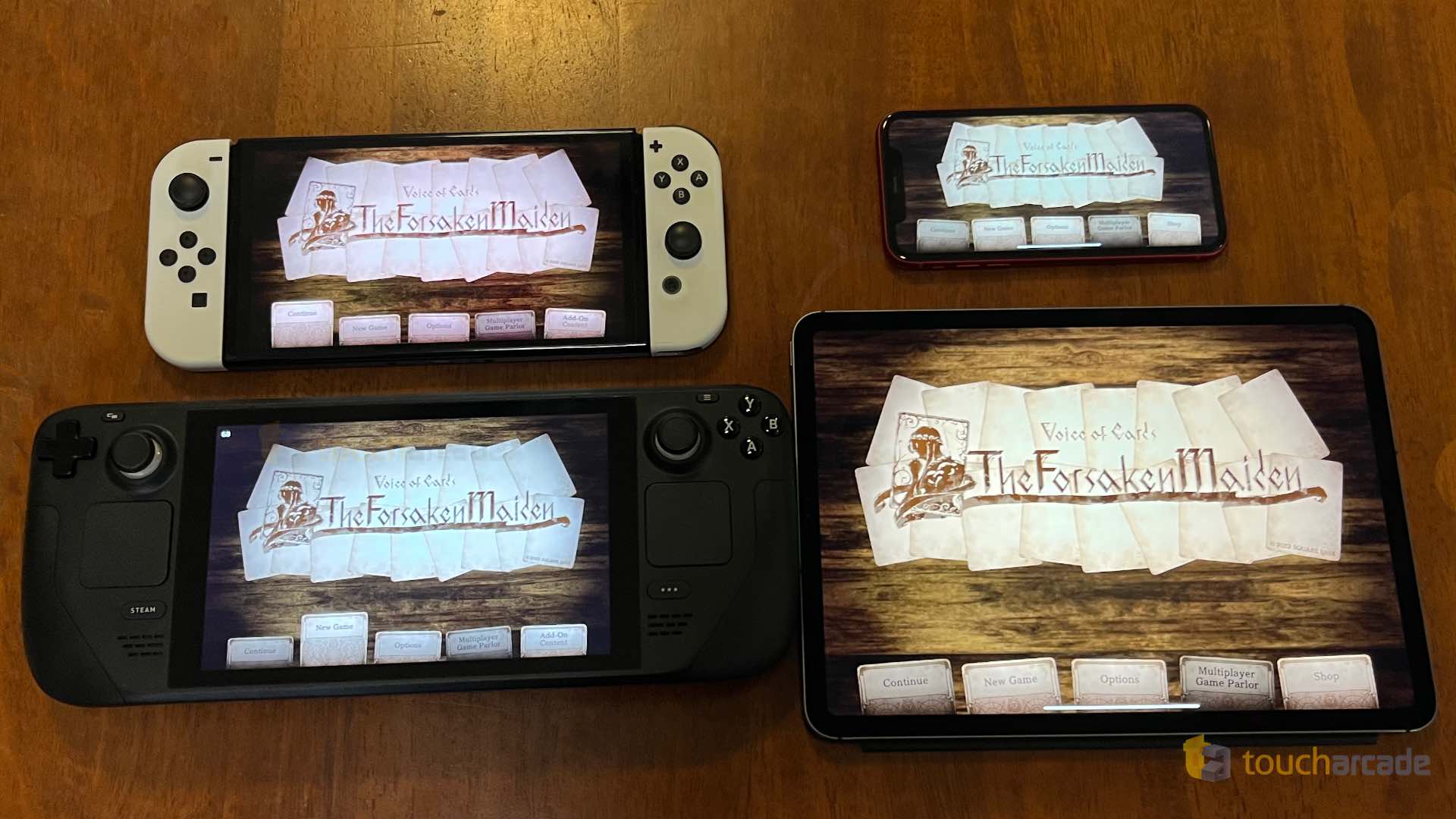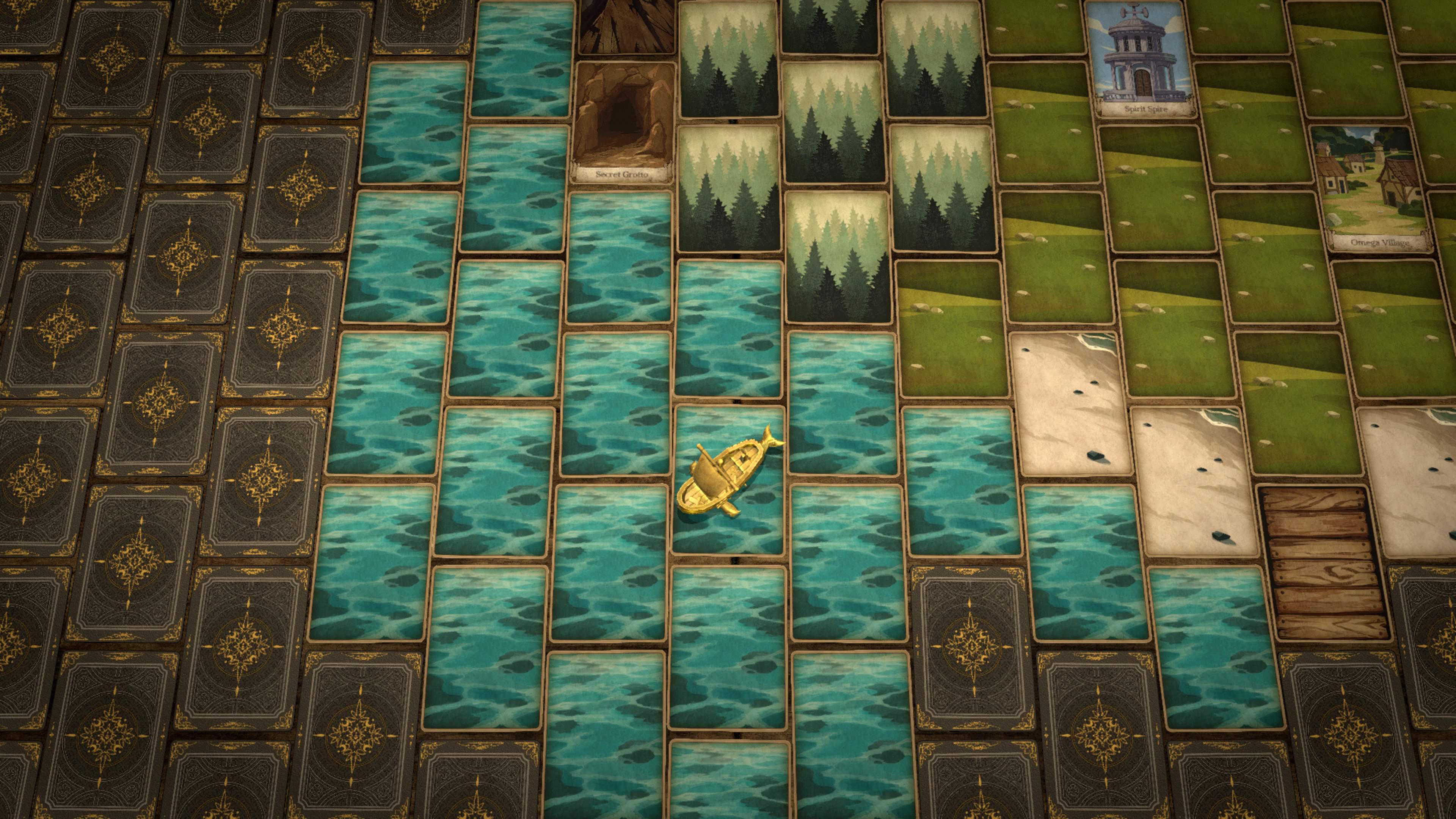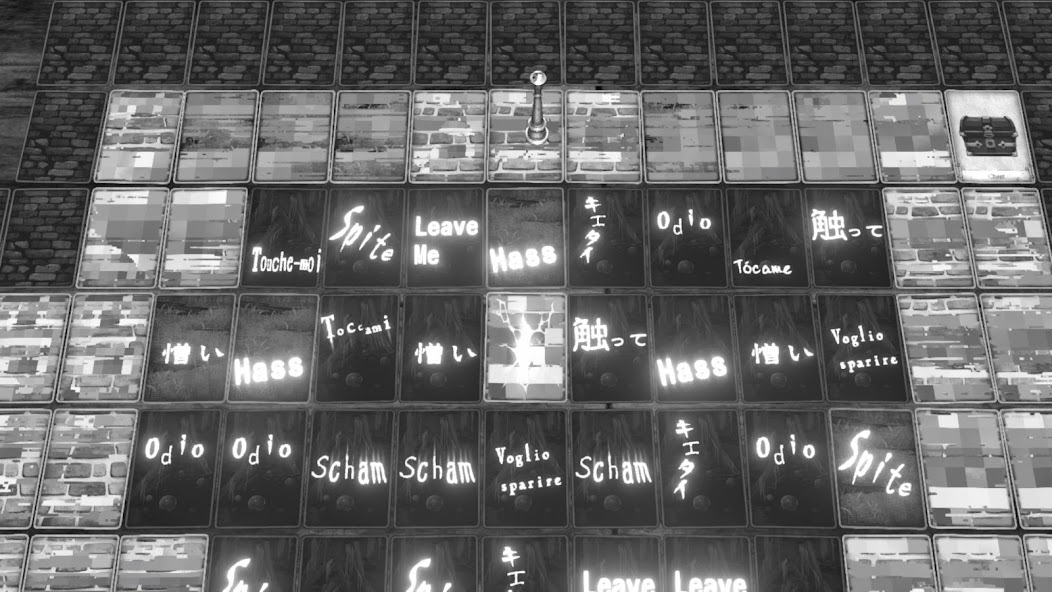‘Voice of Cards: The Forsaken Maiden’ Review – A Good Starting Point
 Following Voice of Cards: The Isle Dragon Roars is Voice of Cards: The Forsaken Maiden ($12.99), a standalone sequel in Square Enix’s new trilogy of turn-based RPGs with a tabletop and card game aesthetic. Since Voice of Cards: The Forsaken Maiden is similar to Voice of Cards: The Isle Dragon Roars in many ways including its iOS port issues, this review will be a bit different. I will focus on what sets Voice of Cards: The Forsaken Maiden apart from the first game and why it is a great entry point. It remains my favorite game in the Voice of Cards trilogy, and I’ve had a lot of fun revisiting it on iPad and iPhone over the last few weeks.
Following Voice of Cards: The Isle Dragon Roars is Voice of Cards: The Forsaken Maiden ($12.99), a standalone sequel in Square Enix’s new trilogy of turn-based RPGs with a tabletop and card game aesthetic. Since Voice of Cards: The Forsaken Maiden is similar to Voice of Cards: The Isle Dragon Roars in many ways including its iOS port issues, this review will be a bit different. I will focus on what sets Voice of Cards: The Forsaken Maiden apart from the first game and why it is a great entry point. It remains my favorite game in the Voice of Cards trilogy, and I’ve had a lot of fun revisiting it on iPad and iPhone over the last few weeks.

Voice of Cards: The Forsaken Maiden, like Voice of Cards: The Isle Dragon Roars, is a very straightforward turn-based RPG mechanically that is elevated by its tabletop and card game aesthetic. This entry is set on islands in an ocean with ancient spirits, and the structure sees you rotating some party members and visiting said islands. The narrative is definitely darker than the first game as well as you try and save one specific island from destruction. You also get more freedom than the first game here, though it takes a bit to open up.
Barring the setting, story, and music, Voice of Cards: The Forsaken Maiden is pretty similar to the first game. There are some additions to combat, but nothing that will change your mind if you didn’t enjoy the first game of the prologue. One other notable aspect is the difficulty. The first Voice of Cards: The Isle Dragon Roars was quite easy, but Voice of Cards: The Forsaken Maiden is more challenging. It isn’t too difficult, but it feels like it respects the player’s skill level more. While it was obviously in development before, it is good to see some player complaints get addressed in this second game.
If you’re completely new to the series and want to start with the best game, Voice of Cards: The Forsaken Maiden is my favorite by far, but I would still recommend getting the free prologue to see how you feel about the port quality, controls, and aesthetic. Voice of Cards: The Isle Dragon Roars Chapter 0 Demo is available on iOS and Android for free. This is a demo and a prologue to the trilogy. Keep in mind that the high speed option that dramatically improved my feeling on the games is not present in this demo / Chapter 0 release.
Just like Voice of Cards: The Isle Dragon Roars, Voice of Cards: The Forsaken Maiden has no controller support. I tried my DualSense and 8bitDo and also my Kishi V2. A controller isn’t the best way to play it anyway, but considering Voice of Cards: The Forsaken Maiden has ports to PS4 and Nintendo Switch alongside controller support on PC, it should’ve been added for those who do want the option. Voice of Cards: The Forsaken Maiden also unfortunately does not include iCloud save support.
Voice of Cards: The Forsaken Maiden also includes optional paid DLC through in-app purchases. This DLC is similar to the first game, but the contents are different. The optional cosmetics and background music DLC here is themed around NieR: Automata so it includes a 2B avatar, Copied City board, Resistance Jukebox, and more with a pixel art set. I don’t think the DLC is worth it right now unless you already played Voice of Cards: The Forsaken Maiden on another platform and are replaying it on mobile, in which case it might be a nice change.
Voice of Cards: The Forsaken Maiden on my iPhone 11 and iPad Pro looks good, but it runs similar to the first game, which is not as smooth as the PC and PS4 versions. I hope Square Enix can address this for newer devices at least because modern mobile hardware should be able to do this and also not have load times that are this long just like the first game. The aesthetic still looks great, and Kimihiko Fujisaka’s art shines once again with the main and side characters. The use of color in particular is very good in this game compared to the The Isle Dragon Roars.

My main complaint with Voice of Cards: The Forsaken Maiden is still the online check on launch. This is a paid premium game on iOS and there is no need to punish players with online DRM like this. I hope an update in the future can remove this.
While I like the story and structure of Voice of Cards: The Forsaken Maiden a lot, the music is just sublime. I regularly listen to songs from the soundtrack I bought on iTunes while working, and it definitely is one of Square Enix’s better soundtracks. Voice of Cards: The Forsaken Maiden also includes dual audio, and I’d recommend trying out both options for a bit if you aren’t sure what narration language to go with. There are subtitles so you can still play with Japanese voices if you prefer that.
I played Voice of Cards: The Forsaken Maiden on PC, Steam Deck, iPhone, iPad, and Nintendo Switch (docked and handheld). As of this writing, my favorite ways to play it are iPad and Switch as long as you’re ok with the online check in the mobile version. Both of these versions don’t run as smoothly as the PS4 and PC versions, but iPad and Switch are a lot more convenient for a game like this compared to something like Steam Deck, especially with great touch controls.

As a tabletop or game book aesthetic, I’m going to keep playing games like this on a portable as long as the conversion is good. It is playable on everything it released on, but I’d go iPad over iPhone for sure here if you have the option. The lack of iCloud syncing makes this decision harder as you can’t play on both if you have them.
Despite it having the same port issues as the first game, Voice of Cards: The Forsaken Maiden is a more-polished entry and my favorite in the Voice of Cards trilogy. I liked the structure and story a lot more, and the music is sublime. It is a shame that Square Enix has still not patched out the online DRM and added cloud save support to these releases. If you’re new to Voice of Cards, I’d recommend playing Voice of Cards: The Forsaken Maiden above the other main games. I hope we see more like this series in the future from Square Enix.
Komentar
Posting Komentar